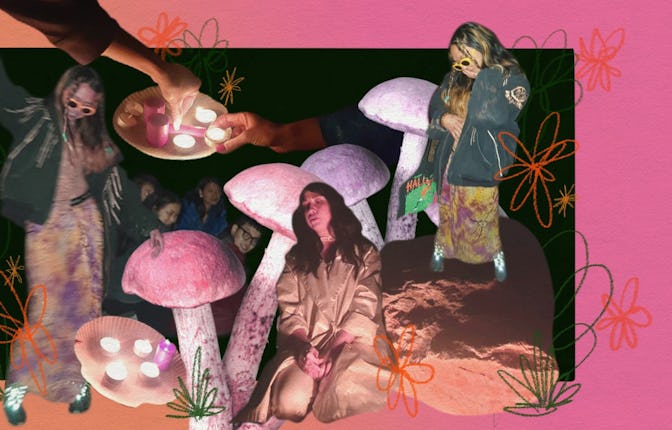Magic mushrooms could help you quit drinking, according to a study
What can’t shrooms do?

There’s a lot of things magic mushrooms can potentially do: They can make you see colors you didn’t know existed, help you to better understand your romantic partner, and generally make you feel happier. But as we study the benefits of shrooms beyond their recreational use, scientists are learning that the psychedelics can also have a deep and far-reaching impact on our mental health. The case for shrooms only got better this week after a new study found that mushrooms can be extraordinarily helpful in fighting alcohol use disorder.
The study, which was published in JAMA Psychiatry, included 94 participants who were dependent on alcohol. All received psychotherapy and some were given psilocybin, which is the compound that gives shrooms their psychedelic qualities, while others were given a placebo, The Daily Beast reported. The participants who were treated with psilocybin were able to cut back on heavy drinking by 83% within eight months, and 48% stopped drinking altogether. This is compared to just 51% of the placebo group who reduced alcohol intake and 24% who quit altogether after eight months.
This study was the first controlled trial of psilocybin for the treatment of alcohol use disorder in humans, although scientists have been studying the role of psychedelics on mental health since the 60s. In the case of mushrooms specifically, its effectiveness in fighting alcoholism might stem from its ability to restore an amino acid receptor that reduces alcohol cravings, per Fierce Biotech.
This study is only scratching the surface of the curative powers of shrooms. Another recent study by the Centre for Psychedelic Research at Imperial College London and the University of California San Francisco found that psilocybin was more effective in treating depression than traditional medication, because it rewired the brain and interrupted neurological patterns that exacerbated depression, per WION. Researchers found that psilocybin opened up “the rigidity of the depressed to allow new thoughts, insight, and perspectives to emerge,” as stated in a press release from UC San Francisco.
These reports come at a time when more young people are taking hallucinogens than at any other time since a federal survey began asking people in 1988. According to the survey, in 2021, 8% of young adults reported using psychedelics, compared to just 3% in 2011.
Although this increasing openness to psychedelics could be great for people who haven’t been able to treat their depression or alcohol dependence through more conventional means, it’s also important to keep in mind that the studies were always done in controlled settings and with the guidance of mental health professionals — and if you are taking any sort of antidepressant or other medication for your mental health, you shouldn’t swap it out without consulting a doctor. Still, it’s difficult not to get excited at the thought that the solution to many of our most serious mental health afflictions has been right under our noses this entire time.
If you are struggling with addiction, or if you are concerned that you or someone you love is experiencing severe depression or is at risk for suicide, please talk to a professional. Call SAMHSA's hotline at 1-800-662-HELP. There’s someone there 24/7/365.